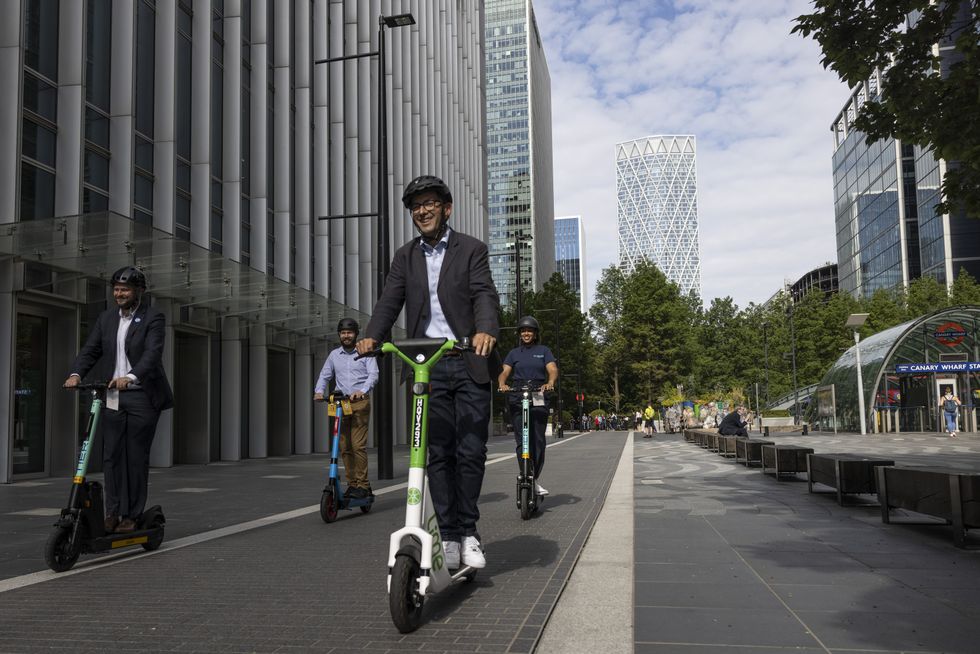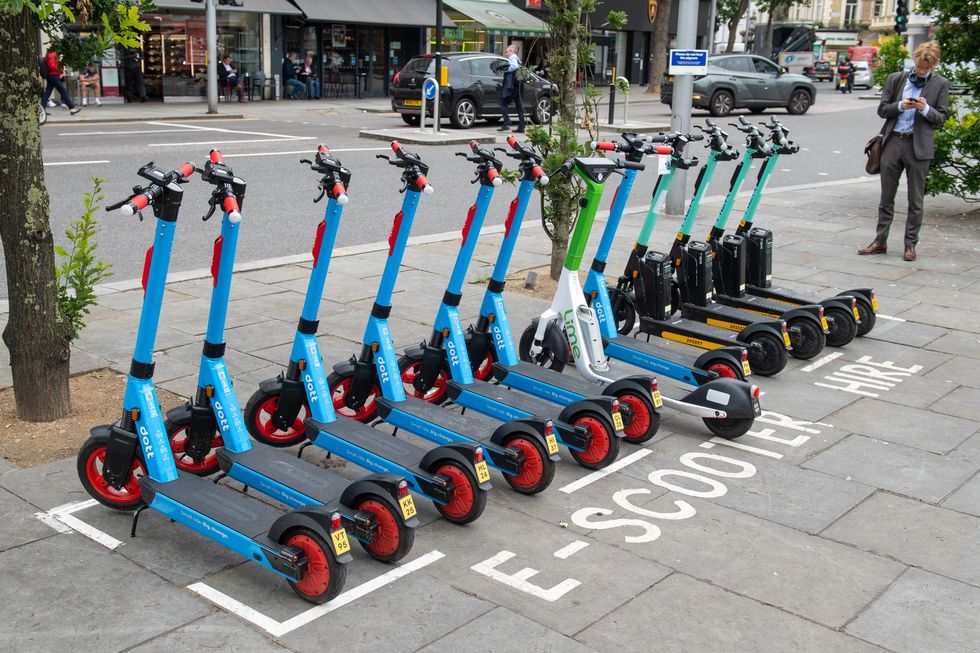Electric scooter law changes would be ‘important milestone’ amid calls to legalise them nationwide

As the UK Government considers legalising privately owned e-scooters, many questions arise, particularly about road safety and personal injury.
This change promises to modernise outdated laws, but it brings both opportunities and challenges for public safety and legal accountability.
E-scooters have become increasingly popular for their convenience, affordability, and eco-friendly benefits. Many see them as a solution to urban congestion and pollution.
While rental e-scooter trials have been taking place in several UK cities, privately owned e-scooters are still illegal on public roads. However, Transport Secretary Louise Haigh has confirmed that the Government intends to legalise them in the near future.
Do you have a story you’d like to share? Get in touch by emailing motoring@gbnews.uk

One of the most pressing issues surrounding the legalisation of privately owned e-scooters is safety. E-scooter riders are vulnerable to collisions due to several factors:
- Design – Small wheels and low ground clearance make e-scooters prone to hazards on the road
- Shared spaces – With no dedicated lanes, e-scooters are forced to share the road with cars, cyclists, and pedestrians, increasing the risk of collisions
- Lack of experience – Unlike drivers of cars and motorcycles, e-scooter riders don’t require a licence, often leaving them without proper road safety training
- Speed – Privately owned e-scooters can be modified to exceed legal speed limits, increasing the severity of crashes
These concerns highlight the need for a comprehensive regulatory framework to protect riders, pedestrians, and other road users.
The legalisation of privately owned e-scooters will bring new legal challenges:
- Liability – If e-scooters are legalised, riders will no longer face the burden of being accused of illegal activity, but liability in collisions will still depend on the specific facts of each case
- Insurance – Without mandatory insurance, victims of crashes involving e-scooters could face difficulties securing compensation, especially if a negligent rider is involved
- Legislative requirements – Rules around mandatory helmets, speed limits, and rider licencing could help mitigate risks. However, violations of these rules could affect the outcome of claims
To ensure victims can access fair compensation, the Government must introduce clear liability provisions and mandatory third-party insurance, similar to the requirements for other motorised vehicles.
From a legal standpoint, it’s crucial that any framework for privately owned e-scooters provides robust protections for those injured in collisions.
Clear guidelines around the responsibility of e-scooter riders are essential. A regulatory system that includes insurance and legal safeguards will help manage disputes and ensure injured parties can access compensation.
As a personal injury solicitor, my primary concern is the protection of those seriously injured in crashes. If the legalisation of e-scooters is not handled carefully, it could lead to a rise in personal injury claims and legal complexities.
The Government must strike a balance between embracing innovation and ensuring accountability to protect public safety.
LATEST DEVELOPMENTS:
- M6 chaos: Drivers warned of brutal two-hour delays following vehicle fire and ‘large diesel spillage’
- DVLA issues update to medical driving licences as Britons face £1,000 fine for not reporting conditions
- Drivers could face extra restrictions on busy roads in new traffic update – ‘It’s what they want’

The potential legalisation of e-scooters is an important milestone for transportation in the UK. It could create cleaner, more efficient travel but requires thoughtful legislation to address the associated risks.
As the debate progresses, input from legal, safety, and transportation experts will be crucial in creating a balanced regulatory framework that ensures safety and fairness for all road users.
Ben Pepper, Senior Associate in the Personal Injury Claims Team at Bolt Burdon Kemp

